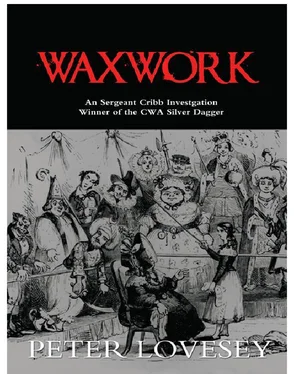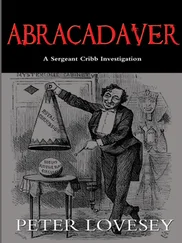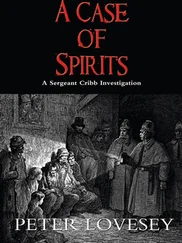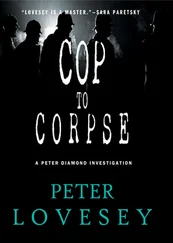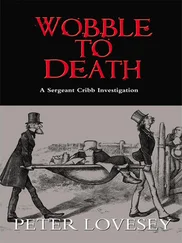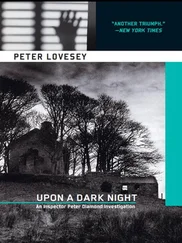Peter Lovesey - Waxwork
Здесь есть возможность читать онлайн «Peter Lovesey - Waxwork» весь текст электронной книги совершенно бесплатно (целиком полную версию без сокращений). В некоторых случаях можно слушать аудио, скачать через торрент в формате fb2 и присутствует краткое содержание. Жанр: Исторический детектив, на английском языке. Описание произведения, (предисловие) а так же отзывы посетителей доступны на портале библиотеки ЛибКат.
- Название:Waxwork
- Автор:
- Жанр:
- Год:неизвестен
- ISBN:нет данных
- Рейтинг книги:3 / 5. Голосов: 1
-
Избранное:Добавить в избранное
- Отзывы:
-
Ваша оценка:
- 60
- 1
- 2
- 3
- 4
- 5
Waxwork: краткое содержание, описание и аннотация
Предлагаем к чтению аннотацию, описание, краткое содержание или предисловие (зависит от того, что написал сам автор книги «Waxwork»). Если вы не нашли необходимую информацию о книге — напишите в комментариях, мы постараемся отыскать её.
Waxwork — читать онлайн бесплатно полную книгу (весь текст) целиком
Ниже представлен текст книги, разбитый по страницам. Система сохранения места последней прочитанной страницы, позволяет с удобством читать онлайн бесплатно книгу «Waxwork», без необходимости каждый раз заново искать на чём Вы остановились. Поставьте закладку, и сможете в любой момент перейти на страницу, на которой закончили чтение.
Интервал:
Закладка:
Cribb glanced at the picture on the wall. They were not the eyes of a child.
‘I can’t believe she was frightened of you, sir. From what you tell me, you never gave her cause for fear.’
‘Good Lord, no! I have never uttered a word in anger to Miriam.’
‘There were no misunderstandings between you? It’s not uncommon in the first year or two of marriage.’
‘Misunderstandings?’ Cromer repeated, and thought a moment. ‘Nothing of any consequence. It is fair to say that she had some difficulty in adjusting to the marriage bond, but that was in the first six months or so, and it was my fault, mine entirely. I lacked imagination. I should have seen what a change her life had undergone. For months we had led an extremely active social life, as I told you a moment ago. We moved in a spirited set of young people, doing everything in the social calendar, and more. After our marriage I wanted Miriam to myself. To see her in my own home, talk to her, photograph her was all I desired. I tried to make this house sufficient for all our needs. What I failed to anticipate was that when I was working, as I was obliged to, she became bored. I engaged a companion for her, Miss Poley, a personable lady in her sixties, proficient at needlework, music and many card games, but in a short time Miriam asked me to dismiss her. With reluctance, I agreed. It was not the answer. We tried to find things Miriam could do in the house without usurping the housekeeper. She agreed to arrange the flowers in the studio and fill the decanters-things a lady could legitimately undertake-but there were still hours when she was unoccupied. She started taking solitary walks in Kew Gardens. I was reluctant-the classic example of a middle-aged husband fearful of losing his pretty young wife-but I gave my consent, and she seemed happier as a result. It appears so trivial now!’
‘You gave up your former friends completely after your marriage, did you, sir?’
‘All except Simon. He still came to dinner once a fortnight. To be candid, I was worried Miriam might weary of me and find the younger people more amusing. I am a jealous and possessive man and that is the truth.’
‘But you trusted your wife?’
‘She was a child,’ Cromer said again.
‘Her innocence was precious to you?’
‘Supremely.’
Cribb gave a nod. It was not for him to lecture Howard Cromer on the practicalities of marriage, but he understood the vulnerability in the young wife’s eyes. And he could see why she had found it impossible to confide her secret.
‘Nothing that has happened has shaken my devotion to her,’ Cromer went on. ‘To lose her, Sergeant, will be … ’ He stopped, unable to face the possibility. ‘Is there a chance, do you think, that …?’
Cribb shook his head. ‘I couldn’t say what is in the Home Secretary’s mind, sir. If it isn’t too distressing, I should like to take a look at the studio.’
Cromer got up at once. ‘I am absolutely at your disposal. It is on the ground floor.’
As they made their way down a carpeted staircase, Cribb asked, ‘Where were you on the day Perceval died, sir?’
Cromer gave him a sharp glance. ‘In Brighton, Sergeant. The Portrait Photographers’ League was holding its annual conference. I am Vice-Chairman.’
‘Of course. Should have remembered. I read it in the statement your wife made.’ Cribb paused to look out of a window. ‘What time did you leave the house that day, sir?’
‘Early,’ answered Cromer. ‘I cannot be exact as to the time.’
‘You were catching a particular train?’
‘No particular one. The Brighton service is frequent, as you must know.’
‘What time did the conference begin, sir?’
‘At eleven, Sergeant.’
‘Then you must have started early. It would take the best part of two hours to get to Brighton from here. You were there in time, I hope?’
‘The trains are most reliable,’ Cromer answered, pushing open a door. ‘This is the reception room. The entire ground floor suite has been converted into studio accommodation.’
Cribb stepped inside, expecting a row of chairs and a pile of magazines. He swiftly learned not to confuse photography with dentistry or men’s haircutting. This was no common waiting-room. It was high and spacious, with a pink and white wall-covering that looked like brocade. The design was repeated in pale blue and yellow in the fabric covers of a carved gilt sofa and chairs in the Louis XIV style. The opulence extended to twin cut-glass chandeliers, an ebonised occasional table and a display cabinet crowded with fine porcelain. Round the walls were ranged framed photographs of purposeful-looking men in frock coats standing beside tall-backed chairs as if they had just risen to make statements of surpassing interest.
‘The doors to right and left lead to the dressing-rooms,’ Cromer explained. ‘The ladies in particular use the powder-puff up to the last possible moment, while no gentleman will submit himself to the lens without straightening his tie.’ He pushed open a pair of doors flanked by tall vases of pampas grass and announced, ‘My studio, Sergeant.’
It was as large as the booking-hall at Kew Gardens station. What had once been a spacious drawing-room had been more than doubled in size by removing the north-facing wall and extending the room outwards into the garden. Besides giving additional space, the extension was obviously designed to admit as much natural light as possible. It was formed largely of glass and dominated by a broad skylight that could be blocked out by a blind operated with pulleys and a cord.
‘Fit for the Queen herself!’ ejaculated Cribb. He strode to the centre to examine a camera large enough to seat a cabman. Ahead was the podium where clients could be posed in suitable attitudes among profile props that included a stile, a church steeple and a rowing-boat. ‘I’m no authority on photography,’ he said conversationally, ‘but I don’t under-estimate its possibilities. We photograph habitual criminals to assist us in detecting crime, did you know that? Half-profile, to get the shape of the nose, you understand, and in their own clothes, naturally. I don’t suggest the results could be compared with yours. We don’t take much trouble over posing the sitters, and retouching isn’t included, but the character comes through. There’s no artistry in it, of course,’ he tactfully added.
Cromer had already moved through the room to another door. He seemed keen to make the tour as quick as possible.
‘That cabinet to your left,’ said Cribb. ‘Would that by any chance be where the wine is kept? I see you have some glasses on the top.’
‘I do beg your pardon,’ said Cromer, in a fluster. ‘Do have a drink.’ He started towards the mahogany chiffonier Cribb had indicated. ‘Will it be sherry or madeira?’
Cribb’s hand shot up to refuse. ‘Thank you, but not on duty, sir. But I would like to see inside if I may.’
Cromer took a key from his pocket, unlocked one of the doors and showed Cribb two cut-glass decanters. ‘The one containing poison is still in the hands of the police,’ he said. ‘I was told I shall get it back eventually.’
‘Are the decanters always kept locked in here, sir?’
‘Oh no. When clients come, I have them on top, to offer them a glass. It helps to put them at their ease. Photography is an awesome experience to the uninitiated, Sergeant.’
‘But you lock the decanters in here when you are not expecting clients?’
‘That is correct. I do not believe in putting temptation in people’s way.’
‘Servants, you mean?’
Cromer nodded. ‘Although when it came to secret drinking, I was perfectly sure that my assistant was the principal culprit. He was partial to madeira and it was quite obvious that the level went down each time I left him to work alone in the studio.’
Читать дальшеИнтервал:
Закладка:
Похожие книги на «Waxwork»
Представляем Вашему вниманию похожие книги на «Waxwork» списком для выбора. Мы отобрали схожую по названию и смыслу литературу в надежде предоставить читателям больше вариантов отыскать новые, интересные, ещё непрочитанные произведения.
Обсуждение, отзывы о книге «Waxwork» и просто собственные мнения читателей. Оставьте ваши комментарии, напишите, что Вы думаете о произведении, его смысле или главных героях. Укажите что конкретно понравилось, а что нет, и почему Вы так считаете.
